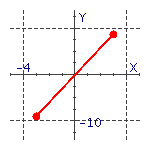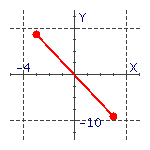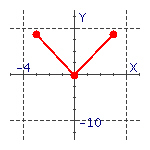Deck 1: Functions and Linear Models
Question
Question
Question
Question
Question
Question
Question
Question
Question
Question
Question
Question
Question
Question
Question
Question
Question
Question
Question
Question
Question
Question
Question
Question
Question
Question
Match between columns
Question
Question
Match between columns
Question
Question
Question
Question
Question
Question
Question
Question
Question
Question
Question
Question
Question
Question
Question
Question
Question
Question
Question
Question
Question
Question
Question
Question
Question
Question
Question
Question
Question
Question
Question
Question
Question
Question
Question
Question
Question
Question
Question
Question
Question
Question
Question
Question
Question
Question
Question
Question
Question
Question
Question
Question

Unlock Deck
Sign up to unlock the cards in this deck!
Unlock Deck
Unlock Deck
1/100
Play
Full screen (f)
Deck 1: Functions and Linear Models
1
Graph shows the number of sports utility vehicles  sold in the United States.
sold in the United States.  represents sales in year
represents sales in year  in thousands of vehicles. Find
in thousands of vehicles. Find  .
. 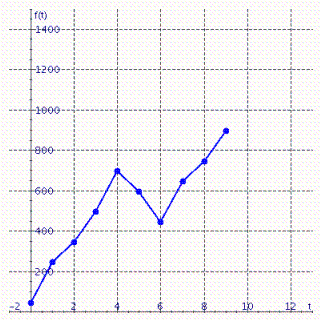
A)
B)
C)
D)
E)
 sold in the United States.
sold in the United States.  represents sales in year
represents sales in year  in thousands of vehicles. Find
in thousands of vehicles. Find  .
. 
A)

B)

C)

D)

E)


2
Choose the graph of the function  from the following:
from the following:
A)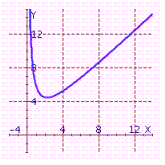
B)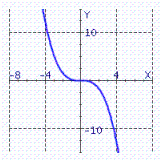
C)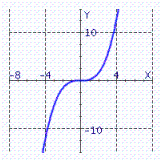
D)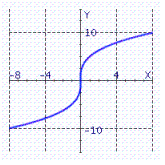
 from the following:
from the following:A)

B)

C)

D)


3
Choose the graph of the function  from the following:
from the following:
A)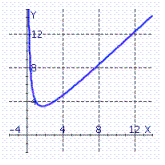
B)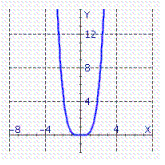
C)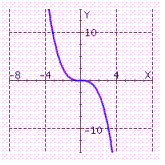
D)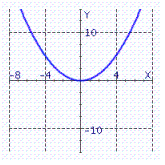
 from the following:
from the following:A)

B)

C)

D)


4
Graph shows the number of sports utility vehicles  sold in the United States.
sold in the United States.  represents sales in year
represents sales in year  in thousands of vehicles. Find
in thousands of vehicles. Find  .
. 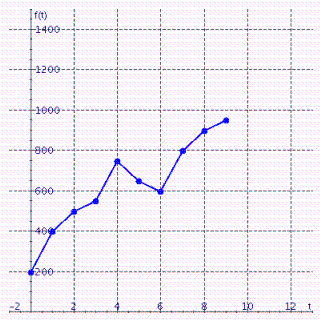
A)
B)
C)
D)
E)
 sold in the United States.
sold in the United States.  represents sales in year
represents sales in year  in thousands of vehicles. Find
in thousands of vehicles. Find  .
. 
A)

B)

C)

D)

E)


Unlock Deck
Unlock for access to all 100 flashcards in this deck.
Unlock Deck
k this deck
5
Use the graph of the function f to find  .
. 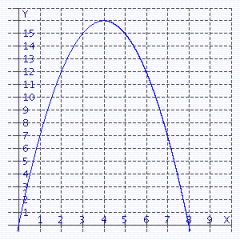
A)
B)
C)
D)
E)
 .
. 
A)

B)

C)

D)

E)


Unlock Deck
Unlock for access to all 100 flashcards in this deck.
Unlock Deck
k this deck
6
Use technology (such as spreadsheet web site utilities, or a graphing calculator)to evaluate the function for  .
.  Round the answer to four decimal places if necessary.
Round the answer to four decimal places if necessary.
A)
B)
C)
D)
E)
 .
.  Round the answer to four decimal places if necessary.
Round the answer to four decimal places if necessary.A)

B)

C)

D)

E)


Unlock Deck
Unlock for access to all 100 flashcards in this deck.
Unlock Deck
k this deck
7
Function f is  . Find
. Find  .
.
A)
B)
C)
D)
E)
 . Find
. Find  .
.A)

B)

C)

D)

E)


Unlock Deck
Unlock for access to all 100 flashcards in this deck.
Unlock Deck
k this deck
8
Given  , find
, find  .
.
A)
B)
C)
D)
E)
 , find
, find  .
.A)

B)

C)

D)

E)


Unlock Deck
Unlock for access to all 100 flashcards in this deck.
Unlock Deck
k this deck
9
Function  is
is  . Find
. Find  .
.
A)
B)
C)
D)
E)
 is
is  . Find
. Find  .
.A)

B)

C)

D)

E)


Unlock Deck
Unlock for access to all 100 flashcards in this deck.
Unlock Deck
k this deck
10
Use the graph of the function f to find  .
. 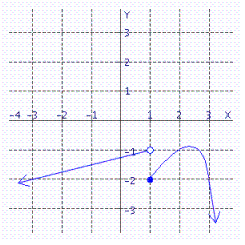
A)
B)
C)
D)
E)
 .
. 
A)

B)

C)

D)

E)


Unlock Deck
Unlock for access to all 100 flashcards in this deck.
Unlock Deck
k this deck
11
Function f is  . Find
. Find  .
.
A)
B)
C)
D)
E)
 . Find
. Find  .
.A)

B)

C)

D)

E)


Unlock Deck
Unlock for access to all 100 flashcards in this deck.
Unlock Deck
k this deck
12
Choose the graph of the function  from the following:
from the following:
A)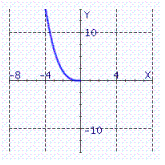
B)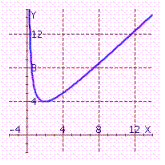
C)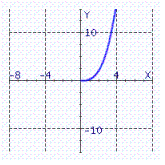
D)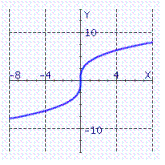
 from the following:
from the following:A)

B)

C)

D)


Unlock Deck
Unlock for access to all 100 flashcards in this deck.
Unlock Deck
k this deck
13
The value of U.S. trade with China from 1994 through 2001 can be approximated by  billion dollars (
billion dollars (  is time in years since 1994). Find an appropriate domain of
is time in years since 1994). Find an appropriate domain of  .
.
A)
B)
C)
D)
E)
 billion dollars (
billion dollars (  is time in years since 1994). Find an appropriate domain of
is time in years since 1994). Find an appropriate domain of  .
.A)

B)

C)

D)

E)


Unlock Deck
Unlock for access to all 100 flashcards in this deck.
Unlock Deck
k this deck
14
Choose the graph of the function  from the following:
from the following:
A)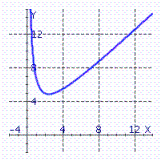
B)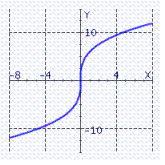
C)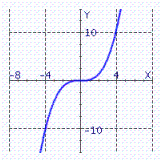
D)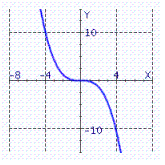
 from the following:
from the following:A)

B)

C)

D)


Unlock Deck
Unlock for access to all 100 flashcards in this deck.
Unlock Deck
k this deck
15
Given  , find
, find  .
.
A)
B)
C)
D)
E)
 , find
, find  .
.A)

B)

C)

D)

E)


Unlock Deck
Unlock for access to all 100 flashcards in this deck.
Unlock Deck
k this deck
16
Function f is  . Find
. Find  .
.
A)
B)
C)
D)No solution
E)
 . Find
. Find  .
.A)

B)

C)

D)No solution
E)


Unlock Deck
Unlock for access to all 100 flashcards in this deck.
Unlock Deck
k this deck
17
Given  , find
, find 
A)
B)
C)
D)
E)
 , find
, find 
A)

B)

C)

D)

E)


Unlock Deck
Unlock for access to all 100 flashcards in this deck.
Unlock Deck
k this deck
18
Use technology (such as spreadsheet web site utilities, or a graphing calculator)to evaluate the function for  .
. 
A)
B)
C)
D)
E)
 .
. 
A)

B)

C)

D)

E)


Unlock Deck
Unlock for access to all 100 flashcards in this deck.
Unlock Deck
k this deck
19
Given  , find
, find  .
.
A)
B)
C)
D)
E)
 , find
, find  .
.A)

B)

C)

D)

E)


Unlock Deck
Unlock for access to all 100 flashcards in this deck.
Unlock Deck
k this deck
20
Given  , find
, find  .
.
A)
B)
C)
D)
E)
 , find
, find  .
.A)

B)

C)

D)

E)


Unlock Deck
Unlock for access to all 100 flashcards in this deck.
Unlock Deck
k this deck
21
The value of the Conference Board Index of 10 economic indicators in the U.S. could be approximated by the function of time  in months since the end of December 2002.
in months since the end of December 2002.  Use the model to estimate when - prior to March, 2004 - the index was 113.
Use the model to estimate when - prior to March, 2004 - the index was 113.
A) months
months
B) months
months
C) months
months
D) months
months
E) months
months
 in months since the end of December 2002.
in months since the end of December 2002.  Use the model to estimate when - prior to March, 2004 - the index was 113.
Use the model to estimate when - prior to March, 2004 - the index was 113.A)
 months
monthsB)
 months
monthsC)
 months
monthsD)
 months
monthsE)
 months
months
Unlock Deck
Unlock for access to all 100 flashcards in this deck.
Unlock Deck
k this deck
22
The percentage  of children who are able to speak in at least single words by the age of
of children who are able to speak in at least single words by the age of  months can be approximated by the equation.
months can be approximated by the equation.  By what age are 60% of children speaking in at least single words? Round your answer to the nearest month.
By what age are 60% of children speaking in at least single words? Round your answer to the nearest month.
A)
B)
C)
D)
E)
 of children who are able to speak in at least single words by the age of
of children who are able to speak in at least single words by the age of  months can be approximated by the equation.
months can be approximated by the equation.  By what age are 60% of children speaking in at least single words? Round your answer to the nearest month.
By what age are 60% of children speaking in at least single words? Round your answer to the nearest month.A)

B)

C)

D)

E)


Unlock Deck
Unlock for access to all 100 flashcards in this deck.
Unlock Deck
k this deck
23
Given  , find
, find  .
.
 , find
, find  .
.
Unlock Deck
Unlock for access to all 100 flashcards in this deck.
Unlock Deck
k this deck
24
Write the equation  using function notation.
using function notation.
A)
B)
C)
D)
E)
 using function notation.
using function notation.A)

B)

C)

D)

E)


Unlock Deck
Unlock for access to all 100 flashcards in this deck.
Unlock Deck
k this deck
25
If the income  is specified as a function of time
is specified as a function of time  , which variable is independent?
, which variable is independent?
A)
B)
 is specified as a function of time
is specified as a function of time  , which variable is independent?
, which variable is independent?A)

B)


Unlock Deck
Unlock for access to all 100 flashcards in this deck.
Unlock Deck
k this deck
26
Match between columns

Unlock Deck
Unlock for access to all 100 flashcards in this deck.
Unlock Deck
k this deck
27
A piano manufacture has a daily fixed cost of $1,100 and a marginal cost of $1,400 per piano. On a given day, what is the cost of manufacturing 3 pianos?
A)
B)
C)
D)
E)
A)

B)

C)

D)

E)


Unlock Deck
Unlock for access to all 100 flashcards in this deck.
Unlock Deck
k this deck
28
Match between columns

Unlock Deck
Unlock for access to all 100 flashcards in this deck.
Unlock Deck
k this deck
29
a)Find correlation coefficient to the set of data. Round the answer to 4 decimal places, if necessary.  r = __________ b)Find correlation coefficient to the set of data. Round the answer to 4 decimal places, if necessary.
r = __________ b)Find correlation coefficient to the set of data. Round the answer to 4 decimal places, if necessary.  r = __________ c)Find correlation coefficient to the set of data. Round the answer to 4 decimal places, if necessary.
r = __________ c)Find correlation coefficient to the set of data. Round the answer to 4 decimal places, if necessary.  r = __________ Use correlation coefficients to determine which of the given sets of data is best fit by its associated regression line. __________ Use correlation coefficients to determine which of the given sets of data is worst fit by its associated regression line. __________ Is it a perfect fit for any of the data sets? __________
r = __________ Use correlation coefficients to determine which of the given sets of data is best fit by its associated regression line. __________ Use correlation coefficients to determine which of the given sets of data is worst fit by its associated regression line. __________ Is it a perfect fit for any of the data sets? __________
 r = __________ b)Find correlation coefficient to the set of data. Round the answer to 4 decimal places, if necessary.
r = __________ b)Find correlation coefficient to the set of data. Round the answer to 4 decimal places, if necessary.  r = __________ c)Find correlation coefficient to the set of data. Round the answer to 4 decimal places, if necessary.
r = __________ c)Find correlation coefficient to the set of data. Round the answer to 4 decimal places, if necessary.  r = __________ Use correlation coefficients to determine which of the given sets of data is best fit by its associated regression line. __________ Use correlation coefficients to determine which of the given sets of data is worst fit by its associated regression line. __________ Is it a perfect fit for any of the data sets? __________
r = __________ Use correlation coefficients to determine which of the given sets of data is best fit by its associated regression line. __________ Use correlation coefficients to determine which of the given sets of data is worst fit by its associated regression line. __________ Is it a perfect fit for any of the data sets? __________
Unlock Deck
Unlock for access to all 100 flashcards in this deck.
Unlock Deck
k this deck
30
Given  , find
, find  .
.
 , find
, find  .
.
Unlock Deck
Unlock for access to all 100 flashcards in this deck.
Unlock Deck
k this deck
31
The number of research articles in Physics Review that were written by researchers in the U.S. from 1983 through 2003 can be approximated by  billion dollars (
billion dollars (  is time in years since 1983). Find an appropriate domain of
is time in years since 1983). Find an appropriate domain of  .
.
A)
B)
C)
D)
E)
 billion dollars (
billion dollars (  is time in years since 1983). Find an appropriate domain of
is time in years since 1983). Find an appropriate domain of  .
.A)

B)

C)

D)

E)


Unlock Deck
Unlock for access to all 100 flashcards in this deck.
Unlock Deck
k this deck
32
Given  , find
, find  .
.
 , find
, find  .
.
Unlock Deck
Unlock for access to all 100 flashcards in this deck.
Unlock Deck
k this deck
33
Given  , find
, find  .
.
 , find
, find  .
.
Unlock Deck
Unlock for access to all 100 flashcards in this deck.
Unlock Deck
k this deck
34
The Oliver company plans to market a new product. Based on its market studies, Oliver estimates that it can sell up to 5,500 units in 2005. The selling price will be $3 per unit. Variable costs are estimated to be 10% of total revenue. Fixed costs are estimated to be $10,800 for 2005. How many units should the company sell to break even?
A) units
units
B) units
units
C) units
units
D) units
units
E) units
units
A)
 units
unitsB)
 units
unitsC)
 units
unitsD)
 units
unitsE)
 units
units
Unlock Deck
Unlock for access to all 100 flashcards in this deck.
Unlock Deck
k this deck
35
In 2004 the Texas Bureau of Economic Geology published a study on the economic impact of using carbon dioxide enhanced oil recovery (EOR)technology to extract additional oil from fields that have reached the end of their conventional economic life. The table gives the approximate number of jobs for the citizens of Texas that would be created at various levels of recovery. Find the regression line.  y = __________ x + __________ Use the regression line to estimate the number of jobs that would be created at a recovery level of 39%.
y = __________ x + __________ Use the regression line to estimate the number of jobs that would be created at a recovery level of 39%. 
 y = __________ x + __________ Use the regression line to estimate the number of jobs that would be created at a recovery level of 39%.
y = __________ x + __________ Use the regression line to estimate the number of jobs that would be created at a recovery level of 39%. 

Unlock Deck
Unlock for access to all 100 flashcards in this deck.
Unlock Deck
k this deck
36
The table shows the number of fiber-optic cable connections to homes in the U.S. from 2000-2004 (  represents 2000). Use technology to obtain the linear regression line, with regression coefficients rounded to two decimal places.
represents 2000). Use technology to obtain the linear regression line, with regression coefficients rounded to two decimal places. 
A)
B)
C)
D)
E)
 represents 2000). Use technology to obtain the linear regression line, with regression coefficients rounded to two decimal places.
represents 2000). Use technology to obtain the linear regression line, with regression coefficients rounded to two decimal places. 
A)

B)

C)

D)

E)


Unlock Deck
Unlock for access to all 100 flashcards in this deck.
Unlock Deck
k this deck
37
The processor speed, in megahertz, of Intel processors could be approximated by the function of time  in years since the start of 1995.
in years since the start of 1995.  Use the model to estimate when processor speeds first hit 3.2 gigahertz (1 gigahertz = 1,000 megahertz).
Use the model to estimate when processor speeds first hit 3.2 gigahertz (1 gigahertz = 1,000 megahertz).
A)
B)
C)
D)
E)
 in years since the start of 1995.
in years since the start of 1995.  Use the model to estimate when processor speeds first hit 3.2 gigahertz (1 gigahertz = 1,000 megahertz).
Use the model to estimate when processor speeds first hit 3.2 gigahertz (1 gigahertz = 1,000 megahertz).A)

B)

C)

D)

E)


Unlock Deck
Unlock for access to all 100 flashcards in this deck.
Unlock Deck
k this deck
38
The percentage  of children who are able to speak in at least single words by the age of
of children who are able to speak in at least single words by the age of  months can be approximated by the equation.
months can be approximated by the equation.  What percent of children are able to speak in at least single words by the age of 11 months? Round to the nearest percent.
What percent of children are able to speak in at least single words by the age of 11 months? Round to the nearest percent.
A) %
%
B) %
%
C) %
%
D) %
%
E) %
%
 of children who are able to speak in at least single words by the age of
of children who are able to speak in at least single words by the age of  months can be approximated by the equation.
months can be approximated by the equation.  What percent of children are able to speak in at least single words by the age of 11 months? Round to the nearest percent.
What percent of children are able to speak in at least single words by the age of 11 months? Round to the nearest percent.A)
 %
%B)
 %
%C)
 %
%D)
 %
%E)
 %
%
Unlock Deck
Unlock for access to all 100 flashcards in this deck.
Unlock Deck
k this deck
39
Given  , find
, find  .
.
A)6
B)4
C)2
D)12
E) -2
 , find
, find  .
.A)6
B)4
C)2
D)12
E) -2

Unlock Deck
Unlock for access to all 100 flashcards in this deck.
Unlock Deck
k this deck
40
Based on the following table, find  .
. 
 .
. 

Unlock Deck
Unlock for access to all 100 flashcards in this deck.
Unlock Deck
k this deck
41
Estimate the slope of the line segment. 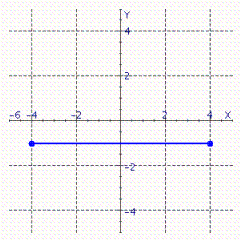
A)
B)
C)
D)
E)

A)

B)

C)

D)

E)


Unlock Deck
Unlock for access to all 100 flashcards in this deck.
Unlock Deck
k this deck
42
Find the linear equation that is the straight line through (1, 1)with slope 3.
A)
B)
C)
D)
E)
A)

B)

C)

D)

E)


Unlock Deck
Unlock for access to all 100 flashcards in this deck.
Unlock Deck
k this deck
43
Decide which of the two given functions is linear and find its equation. 
A)
B)
C)
D)
E)

A)

B)

C)

D)

E)


Unlock Deck
Unlock for access to all 100 flashcards in this deck.
Unlock Deck
k this deck
44
The linear function is given. Find  .
. 
A)
B)
C)
D)
E)
 .
. 
A)

B)

C)

D)

E)


Unlock Deck
Unlock for access to all 100 flashcards in this deck.
Unlock Deck
k this deck
45
Estimate the slope of the line segment. 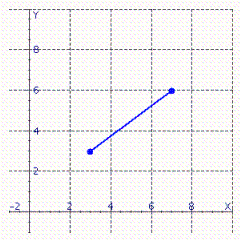
A)
B)
C)
D)
E)

A)

B)

C)

D)

E)


Unlock Deck
Unlock for access to all 100 flashcards in this deck.
Unlock Deck
k this deck
46
Find the linear equation that is the straight line through (25, -4.3)and increasing at a rate of 5 units of  per unit of
per unit of  .
.
A)
B)
C)
D)
E)
 per unit of
per unit of  .
.A)

B)

C)

D)

E)


Unlock Deck
Unlock for access to all 100 flashcards in this deck.
Unlock Deck
k this deck
47
Calculate the slope of the straight line through the points  and
and  . Try to do the calculations mentally.
. Try to do the calculations mentally.
A)
B)
C)
D)
E)
 and
and  . Try to do the calculations mentally.
. Try to do the calculations mentally.A)

B)

C)

D)

E)


Unlock Deck
Unlock for access to all 100 flashcards in this deck.
Unlock Deck
k this deck
48
Sketch the straight line with the equation. 
A)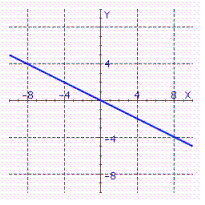
B)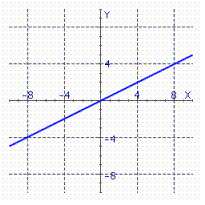
C)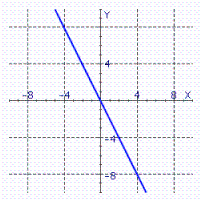
D)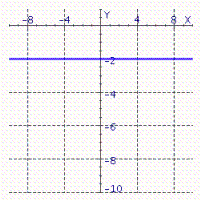
E)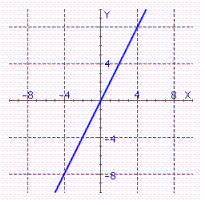

A)

B)

C)

D)

E)


Unlock Deck
Unlock for access to all 100 flashcards in this deck.
Unlock Deck
k this deck
49
Sketch the straight line with the equation. 
A)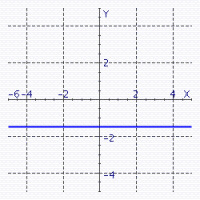
B)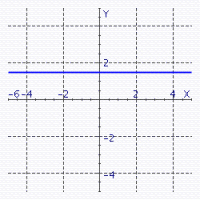
C)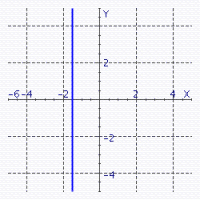
D)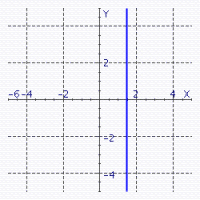
E)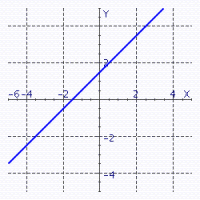

A)

B)

C)

D)

E)


Unlock Deck
Unlock for access to all 100 flashcards in this deck.
Unlock Deck
k this deck
50
Sketch the straight line with the equation. 
A)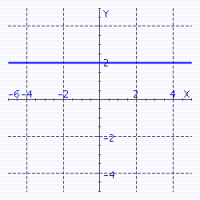
B)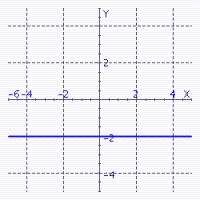
C)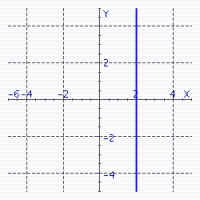
D)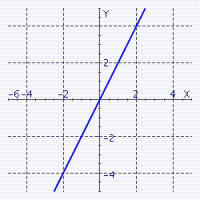
E)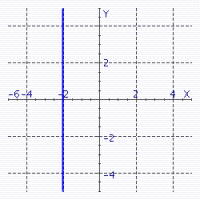

A)

B)

C)

D)

E)


Unlock Deck
Unlock for access to all 100 flashcards in this deck.
Unlock Deck
k this deck
51
Find the equation of the given linear function. 
A)
B)
C)
D)
E)

A)

B)

C)

D)

E)


Unlock Deck
Unlock for access to all 100 flashcards in this deck.
Unlock Deck
k this deck
52
Calculate the slope of the straight line through the points  and
and  . Try to do the calculation mentally.
. Try to do the calculation mentally.
A)
B)
C)
D)
E)
 and
and  . Try to do the calculation mentally.
. Try to do the calculation mentally.A)

B)

C)

D)

E)


Unlock Deck
Unlock for access to all 100 flashcards in this deck.
Unlock Deck
k this deck
53
A table of values for a linear function is given. Find  .
. 
A)
B)
C)
D)
E)
 .
. 
A)

B)

C)

D)

E)


Unlock Deck
Unlock for access to all 100 flashcards in this deck.
Unlock Deck
k this deck
54
Sketch the straight line of the following equation. 
A)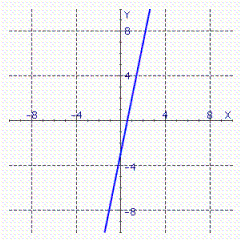
B)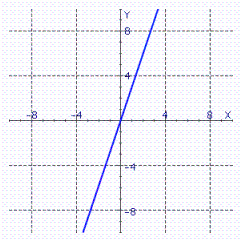
C)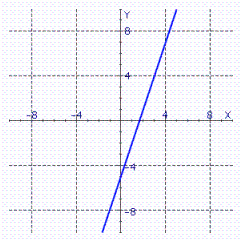
D)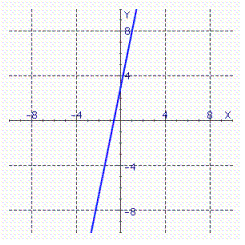

A)

B)

C)

D)


Unlock Deck
Unlock for access to all 100 flashcards in this deck.
Unlock Deck
k this deck
55
The following table shows the approximate value V of one Euro in U.S, dollars from its introduction in January 2000 to January 2004. (  represents January, 2000.)
represents January, 2000.)  Which model would best fit the given data? ( A , a , b , c , k , l , and m are constants.)
Which model would best fit the given data? ( A , a , b , c , k , l , and m are constants.)
A)Exponential:
B)Logarithmic:
C)Cubic:
D)Quadratic:
E)Linear:
 represents January, 2000.)
represents January, 2000.)  Which model would best fit the given data? ( A , a , b , c , k , l , and m are constants.)
Which model would best fit the given data? ( A , a , b , c , k , l , and m are constants.)A)Exponential:

B)Logarithmic:

C)Cubic:

D)Quadratic:

E)Linear:


Unlock Deck
Unlock for access to all 100 flashcards in this deck.
Unlock Deck
k this deck
56
The following table shows the approximate average household income in the U.S. in 1995, 2002, and 2003. (  represents 1995.)
represents 1995.)  Which of the following kinds of models would best fit the given data? ( A , a , b , c , and m are constants.)
Which of the following kinds of models would best fit the given data? ( A , a , b , c , and m are constants.)
A)Quadratic:
B)Logarithmic:
C)Power:
D)Linear:
E)Exponential:
 represents 1995.)
represents 1995.)  Which of the following kinds of models would best fit the given data? ( A , a , b , c , and m are constants.)
Which of the following kinds of models would best fit the given data? ( A , a , b , c , and m are constants.)A)Quadratic:

B)Logarithmic:

C)Power:

D)Linear:

E)Exponential:


Unlock Deck
Unlock for access to all 100 flashcards in this deck.
Unlock Deck
k this deck
57
A table of values for a linear function is given. Find  .
. 
A)
B)
C)
D)
E)
 .
. 
A)

B)

C)

D)

E)


Unlock Deck
Unlock for access to all 100 flashcards in this deck.
Unlock Deck
k this deck
58
Calculate the slope of the straight line through the points (4, 3)and (9, 13).
A)
B)
C)
D)
E)
A)

B)

C)

D)

E)


Unlock Deck
Unlock for access to all 100 flashcards in this deck.
Unlock Deck
k this deck
59
Find the linear equation that is the straight line through  with slope
with slope  .
.
A)
B)
C)
D)
E)
 with slope
with slope  .
.A)

B)

C)

D)

E)


Unlock Deck
Unlock for access to all 100 flashcards in this deck.
Unlock Deck
k this deck
60
Annual federal spending on Medicare increased more or less linearly from $65 billion in 1973 to $128 billion in 1994. Use these data to express  , the annual spending on Medicare (in billions of dollars), as a linear function of
, the annual spending on Medicare (in billions of dollars), as a linear function of  , the number of years since 1973.
, the number of years since 1973.
A)
B)
C)
D)
E)
 , the annual spending on Medicare (in billions of dollars), as a linear function of
, the annual spending on Medicare (in billions of dollars), as a linear function of  , the number of years since 1973.
, the number of years since 1973.A)

B)

C)

D)

E)


Unlock Deck
Unlock for access to all 100 flashcards in this deck.
Unlock Deck
k this deck
61
Find the linear equation that is the straight line through (3, 4)and (9, 40).
A)
B)
C)
D)
E)
A)

B)

C)

D)

E)


Unlock Deck
Unlock for access to all 100 flashcards in this deck.
Unlock Deck
k this deck
62
In 1950 the number of retirees was approximately 150 per thousand people aged 20-64. In 1990 this number rose to approximately 200, and it is projected to rise to 275 in 2020. Model  as a piecewise linear function of the time
as a piecewise linear function of the time  in years since 1950, and use your model to project the number of retires per thousand people aged 20-64 in 1955. (Round you answer to the nearest integer.)
in years since 1950, and use your model to project the number of retires per thousand people aged 20-64 in 1955. (Round you answer to the nearest integer.)
A) people per thousand
people per thousand
B) people per thousand
people per thousand
C) people per thousand
people per thousand
D) people per thousand
people per thousand
E) people per thousand
people per thousand
 as a piecewise linear function of the time
as a piecewise linear function of the time  in years since 1950, and use your model to project the number of retires per thousand people aged 20-64 in 1955. (Round you answer to the nearest integer.)
in years since 1950, and use your model to project the number of retires per thousand people aged 20-64 in 1955. (Round you answer to the nearest integer.)A)
 people per thousand
people per thousandB)
 people per thousand
people per thousandC)
 people per thousand
people per thousandD)
 people per thousand
people per thousandE)
 people per thousand
people per thousand
Unlock Deck
Unlock for access to all 100 flashcards in this deck.
Unlock Deck
k this deck
63
A car that was being pursued by the police was at Jones Beach at exactly 9:57 p.m. ( t = 0), and passed Oak Beach (13 miles from Jones Beach)at exactly 10:05 p.m.,where it was overtaken by the police. How fast, in miles per minute, was the car traveling? (Round your answer to the nearest tenth.)
A) miles/min.
miles/min.
B) miles/min.
miles/min.
C) miles/min.
miles/min.
D) miles/min.
miles/min.
E) miles/min.
miles/min.
A)
 miles/min.
miles/min.B)
 miles/min.
miles/min.C)
 miles/min.
miles/min.D)
 miles/min.
miles/min.E)
 miles/min.
miles/min.
Unlock Deck
Unlock for access to all 100 flashcards in this deck.
Unlock Deck
k this deck
64
The demand for your college newspaper is 1200 copies per week if the paper is given a way free of charge, and the demand drops to 600 if the charge is $0.10 per copy. However, the university is prepared to supply only 500 copies per week free of charge but will supply 2500 per week at $0.50 per copy. At what price should the college newspapers be sold so that there is neither a surplus nor a shortage of papers?
A)
B)
C)
D)
E)
A)

B)

C)

D)

E)


Unlock Deck
Unlock for access to all 100 flashcards in this deck.
Unlock Deck
k this deck
65
In the Fahrenheit temperature scale, water freezes at 32 F and boils at 212 F. In the Celsius (or centigrade)scale, water freezes at 0 C and boils at 100 C. Assuming that the Fahrenheit temperature  and the Celsius temperature
and the Celsius temperature  are related by a linear equation, find the Fahrenheit temperature that correspond to 31 C, to the nearest degree.
are related by a linear equation, find the Fahrenheit temperature that correspond to 31 C, to the nearest degree.
A) F
F
B) F
F
C) F
F
D) F
F
E) F
F
 and the Celsius temperature
and the Celsius temperature  are related by a linear equation, find the Fahrenheit temperature that correspond to 31 C, to the nearest degree.
are related by a linear equation, find the Fahrenheit temperature that correspond to 31 C, to the nearest degree.A)
 F
FB)
 F
FC)
 F
FD)
 F
FE)
 F
F
Unlock Deck
Unlock for access to all 100 flashcards in this deck.
Unlock Deck
k this deck
66
In the Fahrenheit temperature scale, water freezes at 32 F and boils at 212 F. In the Celsius (or centigrade)scale, water freezes at 0 C and boils at 100 C. Assuming that the Fahrenheit temperature  and the Celsius temperature
and the Celsius temperature  are related by a linear equation, find the Fahrenheit temperature that corresponds to 71 C, to the nearest degree. __________ F
are related by a linear equation, find the Fahrenheit temperature that corresponds to 71 C, to the nearest degree. __________ F
 and the Celsius temperature
and the Celsius temperature  are related by a linear equation, find the Fahrenheit temperature that corresponds to 71 C, to the nearest degree. __________ F
are related by a linear equation, find the Fahrenheit temperature that corresponds to 71 C, to the nearest degree. __________ F
Unlock Deck
Unlock for access to all 100 flashcards in this deck.
Unlock Deck
k this deck
67
The position of a model train, in feet along the railroad track, is given by  after
after  seconds. Where is the train after 10 seconds?
seconds. Where is the train after 10 seconds?
A) feet
feet
B) feet
feet
C) feet
feet
D) feet
feet
E) feet
feet
 after
after  seconds. Where is the train after 10 seconds?
seconds. Where is the train after 10 seconds?A)
 feet
feetB)
 feet
feetC)
 feet
feetD)
 feet
feetE)
 feet
feet
Unlock Deck
Unlock for access to all 100 flashcards in this deck.
Unlock Deck
k this deck
68
You can sell 95 pet chias per week if they are marked as $5 each,but only 45 per week if they are marked $6 per chia. Your chia supplier is prepared to sell you 20 chias per week if they are marked $5 per chia, and 70 per week if they are marked $6 per chia. At what price should the chias be marked so that there is neither surplus nor a shortage of chias?
A)
B)
C)
D)
E)
A)

B)

C)

D)

E)


Unlock Deck
Unlock for access to all 100 flashcards in this deck.
Unlock Deck
k this deck
69
The Snowtree cricket behaves in a rather interesting way: The rate at which it chirps depends linearly on the temperature. One summer evening you hear a cricket chirping at a rate of 140 chirps per minute, and you notice that the temperature is 80°F. Later in the evening, the cricket has slowed down to 120 chirps per minute, and you notice that the temperature has dropped to 75°F. What is the temperature if the cricket is chirping at a rate of 108 chirps per minute?
A) F
F
B) F
F
C) F
F
D) F
F
E) F
F
A)
 F
FB)
 F
FC)
 F
FD)
 F
FE)
 F
F
Unlock Deck
Unlock for access to all 100 flashcards in this deck.
Unlock Deck
k this deck
70
Find the linear equation that is the straight line through (9, 5)and parallel to the line  .
.
A)
B)
C)
D)
E)
 .
.A)

B)

C)

D)

E)


Unlock Deck
Unlock for access to all 100 flashcards in this deck.
Unlock Deck
k this deck
71
The position of a model train, in feet along the railroad track, is given by  after
after  seconds. When will the train have moved a distance of 30 feet?
seconds. When will the train have moved a distance of 30 feet?
A)after seconds
seconds
B)after seconds
seconds
C)after seconds
seconds
D)after seconds
seconds
E)after seconds
seconds
 after
after  seconds. When will the train have moved a distance of 30 feet?
seconds. When will the train have moved a distance of 30 feet?A)after
 seconds
secondsB)after
 seconds
secondsC)after
 seconds
secondsD)after
 seconds
secondsE)after
 seconds
seconds
Unlock Deck
Unlock for access to all 100 flashcards in this deck.
Unlock Deck
k this deck
72
The linear function is given. Find  .
. 
 .
. 

Unlock Deck
Unlock for access to all 100 flashcards in this deck.
Unlock Deck
k this deck
73
Calculate the slope of the straight line through the points (4, 1)and (6, -5). Try to do the calculations mentally.

Unlock Deck
Unlock for access to all 100 flashcards in this deck.
Unlock Deck
k this deck
74
U.S. imports of pasta increased from 290 million pounds in 1990 ( t = 0), by an average of 52 million pounds per year. Estimate U.S. pasta import (in million pounds)in the year 2010, assuming the import trend continued.
A)1,382 million pounds
B)342 million pounds
C)1,040 million pounds
D)2,300 million pounds
E)1,330 million pounds
A)1,382 million pounds
B)342 million pounds
C)1,040 million pounds
D)2,300 million pounds
E)1,330 million pounds

Unlock Deck
Unlock for access to all 100 flashcards in this deck.
Unlock Deck
k this deck
75
In the Fahrenheit temperature scale, water freezes at 32 F and boils at 212 F. In the Celsius (or centigrade)scale, water freezes at 0 C and boils at 100 C. Assuming that the Fahrenheit temperature  and the Celsius temperature
and the Celsius temperature  are related by a linear equation, find the Celsius temperature that correspond to 68 F, to the nearest degree.
are related by a linear equation, find the Celsius temperature that correspond to 68 F, to the nearest degree.
A) C
C
B) C
C
C) C
C
D) C
C
E) C
C
 and the Celsius temperature
and the Celsius temperature  are related by a linear equation, find the Celsius temperature that correspond to 68 F, to the nearest degree.
are related by a linear equation, find the Celsius temperature that correspond to 68 F, to the nearest degree.A)
 C
CB)
 C
CC)
 C
CD)
 C
CE)
 C
C
Unlock Deck
Unlock for access to all 100 flashcards in this deck.
Unlock Deck
k this deck
76
You can sell 80 pet chias per week if they are marked as $4 each, but only 30 per week if they are marked $5 per chia. Your chia supplier is prepared to sell you 20 chias per week if they are marked $4 per chia, and 70 per week if they are marked $5 per chia. Write the associated linear demand and supply functions.
A) ,
, 
B) ,
, 
C) ,
, 
D) ,
, 
E) ,
, 
A)
 ,
, 
B)
 ,
, 
C)
 ,
, 
D)
 ,
, 
E)
 ,
, 

Unlock Deck
Unlock for access to all 100 flashcards in this deck.
Unlock Deck
k this deck
77
The height of the falling sheet of paper, in feet from the ground, is given by  after
after  seconds. When will the sheet of paper reach the ground?
seconds. When will the sheet of paper reach the ground?
A)after seconds
seconds
B)after seconds
seconds
C)after seconds
seconds
D)after seconds
seconds
E)after seconds
seconds
 after
after  seconds. When will the sheet of paper reach the ground?
seconds. When will the sheet of paper reach the ground?A)after
 seconds
secondsB)after
 seconds
secondsC)after
 seconds
secondsD)after
 seconds
secondsE)after
 seconds
seconds
Unlock Deck
Unlock for access to all 100 flashcards in this deck.
Unlock Deck
k this deck
78
A police car was traveling down Ocean Parkway in a high-speed chase from Jones Beach. The car was at Jones Beach at exactly 7:00 p.m. ( t = 0), and was at Oak Beach, 13 miles from Jones Beach, at exactly 7:04 p.m. How fast was the police car traveling? (Round your answer to the nearest tenth.)
A) miles/min.
miles/min.
B) miles/min.
miles/min.
C) miles/min.
miles/min.
D) miles/min.
miles/min.
E) miles/min.
miles/min.
A)
 miles/min.
miles/min.B)
 miles/min.
miles/min.C)
 miles/min.
miles/min.D)
 miles/min.
miles/min.E)
 miles/min.
miles/min.
Unlock Deck
Unlock for access to all 100 flashcards in this deck.
Unlock Deck
k this deck
79
Calculate the slope of the straight line through the points (4.1, 1)and (9.1, -14). Try to do the calculations mentally.

Unlock Deck
Unlock for access to all 100 flashcards in this deck.
Unlock Deck
k this deck
80
In the Fahrenheit temperature scale, water freezes at 32 F and boils at 212 F. In the Celsius (or centigrade)scale, water freezes at 0 C and boils at 100 C. Assuming that the Fahrenheit temperature  and the Celsius temperature
and the Celsius temperature  are related by a linear equation, find the Celsius temperature that correspond to 175 F, to the nearest degree. __________ C
are related by a linear equation, find the Celsius temperature that correspond to 175 F, to the nearest degree. __________ C
 and the Celsius temperature
and the Celsius temperature  are related by a linear equation, find the Celsius temperature that correspond to 175 F, to the nearest degree. __________ C
are related by a linear equation, find the Celsius temperature that correspond to 175 F, to the nearest degree. __________ C
Unlock Deck
Unlock for access to all 100 flashcards in this deck.
Unlock Deck
k this deck




